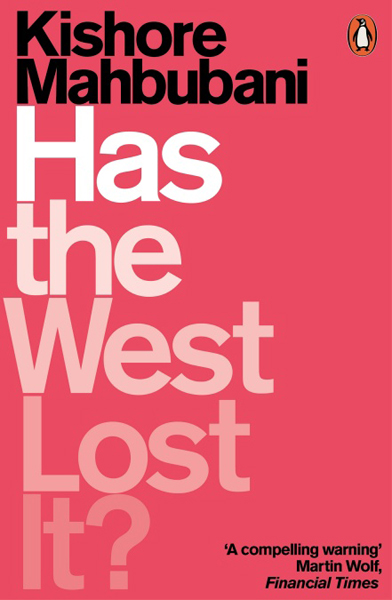New dynamics
By Andrew Moody | China Daily | Updated: 2019-01-28 07:33

Mahbubani argues instead that the world is returning to a default position that has existed for 1,800 out of the last 2,000 years, with China and India being the two largest economies.
Mahbubani, although born in Singapore, is the son of parents who settled in the then British colony after leaving Hyderabad, which is now in Sindh, Pakistan. His father, a salesman, arrived in Singapore in the 1930s and his mother arrived after India's partition.
He excelled academically, taking a first-class degree in philosophy from the University of Singapore, before pursuing a diplomatic career, ending up as Singapore's permanent representative to the United Nations and serving as president of the United Nations Security Council from 2001 to 2002.
He believes the security council needs to be reformed to reflect the more populous countries.
Mahbubani, who is now a professor at the National University of Singapore, is supportive of what China is doing in terms of adding to the global architecture with the Asian Infrastructure Investment Bank and the Belt and Road Initiative, which will hold its second summit this year.
"The Belt and Road Initiative is actually a remarkably generous project. China is deploying trillions of dollars of capital to improve infrastructure all over the world. That is amazing," he says.
Mahbubani believes one of the West's main priorities should be a new way of engaging with China.
"The idea that you can contain China is a great delusion," he says.
In the book he refers to advice former US president Bill Clinton gave in a speech at Yale University in 2003.
"He says that if America is going to continue to be No 1, then it can do what it wants. It can choose this or that. But if it can conceive of a world where it is no longer No 1, then it is in its interests to create multilateral rules, partnerships and institutions."
Mahbubani, whose other books include Can Asians Think? and The Great Convergence, believes some of this is lost in the current trade dispute between the US and China.
"The reality is that the reduction of global poverty has been because of the spectacular increase in global trade, which has benefited not only China but the US, too. The increase in global trade is due in part to the World Trade Organization. And what does the US try to do but cripple it?" he says.
Mahbubani believes Europe is making major mistakes, too, particularly in relation to Africa, by not being a ready market to exports of African agriculture and other goods, and attempting to close itself off.
He believes it should be supportive of China's investment, particularly in infrastructure, on the continent.
"I always tell Europeans that if you don't export jobs to Africa, Africa will export Africans to Europe. China is investing in Africa, building highways, ports and setting up factories that will reduce the risk of a migration crisis for Europe."
He also believes that Brexit is another fracture in the West and will be ultimately bad for the UK.
"It's a completely unnecessary tragedy. There is no doubt in my mind that the UK's standing will go down in the world, if it is not part of the European Union. People used to feel that if you dealt with the British, you would have influence on European policy, too."
Mahbubani, however, believes that the major challenge for the West is to recognize that the world has a new dynamic.
"What the West has got to learn to live with is that it is a much more diverse place with a whole range of political and economic systems," he says.
























